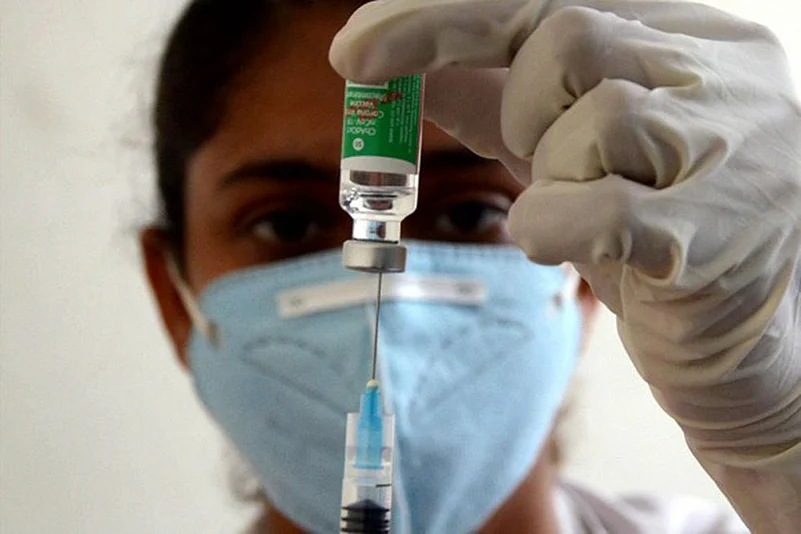Amid recent studies suggesting it would be better to shorten the gap between two doses of Covishield vaccine to protect people from virus variants circulating in the country, Niti Aayog member (Health) Dr VK Paul on Friday said reducing the time gap requires proper scientific study in the Indian scenario.
Stating that there is no need to panic, Dr Paul said there is a need to balance various concerns in the Indian scenario and that the decision to increase the gap between the two Covishield doses was taken after due consultation.
Addressing a media briefing on Covid-19, he said, "There is no need for any panic, suggesting need for immediate switchover or change in the gap between the doses. All these decisions must be taken very carefully. We must remember that when we increased the gap, we had to consider the risk posed by the virus to those who have received only one dose. But the counterpoint was that more people will then be able to get the first dose, thereby giving a reasonable degree of immunity to more people."
"We need to balance these concerns. So, please remember, that we need to necessarily have this debate and discourse in the public domain; however, the decision has to be taken by appropriate fora comprising eminent people who are knowledgeable about this," he said.
The Centre, on May 13, had increased the gap between the two doses of the Covishield vaccine to 12-16 weeks following a recommendation from a government panel, and said it is a "science-based decision" taken with confidence that there will be no extra risk.
The previous gap between two doses of Covishield, manufactured by the Serum Institute of India, was 6-8 weeks.
Paul said in the National Technical Advisory Group on Immunisation (NTAGI), there are quite a few people who have been a part of WHO panels and committees and are globally renowned and recognised for their eminence. Moreover, NTAGI is regarded as a standard when it comes to global and national immunization programmes. "So, please respect their decisions," he said.
Welcoming a discourse on this topic, Paul highlighted the need for due scientific process in arriving at such decisions. He appealed to the public to respect the decision taken by NTAGI, a body of globally renowned experts.
Let the decision regarding dose interval be examined by NTAGI, according to due process. The UK must have adopted due process and examined data scientifically, to revise their previous decision regarding the gap. The UK had earlier kept the gap at 12 weeks, but as per data available to us, we did not consider it safe at that point, he said.
"So, let us entrust this to our scientific fora, they must be addressing it already. They will review it based on the pandemic situation in our country, depending on the extent of prevalence of the delta variant in our country and then take a comprehensive view. Whichever decision is taken by our scientific community, we will honour it," Paul stated.
(With PTI inputs)


























